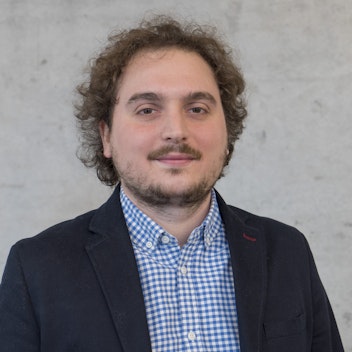
Education in mother tongue is one of the pillars of minority rights, as well as a key measure of the Second Autonomy Statute of South Tyrol, an Italian province with German and Ladin population considered a good example to resolve ethnic tension and protect minorities. The Statute foresees education in students’ mother tongue for kindergartens, primary and secondary schools alongside compulsory teaching of the other official language spoken in South Tyrol. This has been obtained through the creation of separate school systems: Italian-language schools, German-language schools and trilingual-schools in the Ladin valleys. Notwithstanding, parents have the right to choose what school to enroll their children in. An enactment decree from 1988 introduced some limitations, establishing that when students do not have an adequate knowledge of the school language, as evaluated by a special commission, they will be enrolled in the school of the other language of instruction; however, such measure has been rarely implemented.
In the past ten/fifteen years the system has been put under pressure by different socio-demographic developments: the presence of children from mixed (Italian/German) families; the choice of many Italian-speaking parents to send their children to German schools – due to the high socio-economic value of German language; and last but not least the increasing presence of foreign students (about 10% of the student body in German schools and 25% in Italian schools in the 2022-23 school year). These developments have created many difficulties in German schools and have started to be politicized with many complaining that linguistic mixture in schools compromises the teaching in the mother tongue, reduces the quality of teaching, if not even turns German-speaking students in a minority. In recent years, to protect the integrity of the German school, some measures have been introduced to direct parents’ choice, like mandatory school-parent meetings, whereas more radical proposals like entry language test have been rejected. On the other hand, many (especially mixed families and in the Italian-speaking group) have asked for decades to create and add a bilingual school system.
This year the issue has found a new apex when a German elementary school in South Tyrol’s capital city Bolzano/Bozen created a “special” class for students from foreign and Italian-speaking families. The decision has raised several criticisms, from accusations of racism to experts’ comments that such classes are counterproductive; the initiative has been eventually rejected by the Provincial Government. However, debates continue, including requests to nominate the commission to implement the 1988 law. Meanwhile, in the city of Merano/Meran a proposal has been launched to experiment a bilingual kindergarten.
These dynamics highlight some of the difficulties of minority protection, in primis the need to properly balance minority rights, like education in mother tongue, with other fundamental individual freedoms and rights as well as the necessity to consider broader societal interests. If the creation of separate schools might be an acceptable tool to protect minorities, at the same time international instruments of minority protection highlight the need to integrate societies and allow the development of multiple identities, like “The Ljubljana Guidelines on Integration of Diverse Societies”, enacted by the High Commissioner on National Minorities of OSCE.
Furthermore, the politicization of education in South Tyrol points out the challenges of overcoming ethnic tensions and the trauma of the past in a culturally divided society. Indeed, despite the extension and success of the South Tyrolean autonomy system, in some sectors of the German-speaking community the remembrance of the discrimination suffered in the past, like the closing of German schools under Fascism, still reverberates and a defensive attitude remains toward anything perceived as a threat to its language and culture. This attitude seems to have intensified with the rise to power of Giorgia Meloni and her party Fratelli d’Italia, which has reignited memories and fears of centralist, if not outright fascist, demands. Such defensiveness seems particularly strong in German-speaking schools, as highlighted by a recent publication by Irene Landini, who examines how different school systems in South Tyrol address the presence of students with migrant backgrounds. According to Landini, teachers in German-speaking schools of Bolzano/Bozen frequently express concerns about the erosion of the German language and the need to protect the linguistic group, whereas in Italian-speaking schools of the city, the focus tends to be more on challenges related to cultural and religious differences.
Together with this defensive attitude, there still appears to be a vision of South Tyrolean society as divided into distinct, if not competing, groups, a perception likely rooted in certain norms of the Autonomy Statute and related measures, including the distinct school systems. In this division, one group’s gain is seen as the other’s loss, leading figures like the Provincial Vice President Matteo Galateo of Fratelli d’Italia to argue that the decision of Italian parents to enroll their children in German-speaking schools represents assimilation (of the Italian group), and it has thus a negative connotation. Such vision and defensive attitudes clash with many experts’ observations and academic research in the field of education and linguistic pointing out that early exposure to other languages is fruitful, bilingual schools might enrich the development of children and foster mutual awareness, comprehension and interethnic cohabitation, and schools should aim at promoting inclusion.
More broadly, the debate over separated schools (or classes) reflects a central problem of contemporary society in dealing with diversity. As commented by the linguist Andrea Abel "monolingual schools are ideological products of the 20th century". In other terms, the dispute over South Tyrolean schools includes a nationalist view of language, wherein a community is identified with a single language, considered a central element of its identity. In this view, the presence of another language in German-speaking schools threatens the mother tongue of the group and poses the risk of assimilation. This is essentially the nationalist ideology encapsulated in the slogan "one people, one nation, one culture, one language," which struggles to see diversity as a normal aspect of human society and clashes with Italian President Mattarella’s recent reminder that no one should feel foreign in their own home, regardless of language, culture, or religion.
There remains the question of how to resolve this situation and adjust South Tyrolean school system to the challenges of today’s global society while continuing to guarantee an adequate level of minority protection. First of all, it is necessary to recognize that the issue is extremely complex, and any solution must be shared, carefully considered, and long-term, integrating the interests, ideas, analyses, and needs arising from various levels and expertise. Ultimately, this solution must reject the simplicity of binaries: yes versus no, right versus wrong.
For example, regarding the rejected initiative to create “special classes,” the main issue with the rhetoric surrounding this debate is its tendency toward absolutes, reducing a complex issue to overly simplistic, often localized or individual dynamics. A more productive starting point would be to acknowledge the inherent complexities of the needs and expectations of the various stakeholders involved, avoiding oversimplifications and engaging with both common challenges and individual differences. Crucially, the focus should remain on the needs of the students.
Much has been said about the potential benefits of segregated classes for native speakers and the disadvantages for non-native speakers. However, one must ask who is most affected by these hypothetical advantages or disadvantages. Beyond the scientific evidence – which frequently underscores the negative social and academic impacts of linguistic segregation on both groups – the primary benefit of such separation lies in the increased homogeneity of the classroom, making it easier to meet predetermined educational objectives. In other words, linguistic segregation primarily benefits the teaching staff, who would perceive the arrangement as optimal in at least one of the two classes. With two classes of seemingly clear, categorizable needs, specific measures could be tailored to meet the objectives of the national curriculum. While this may enable both groups of students to (potentially) complete the curriculum, it risks sacrificing a broader educational experience, the kind of holistic learning that schools are expected to provide as microcosms of society.
However, recognizing that linguistically homogeneous classes primarily benefit teachers should not lead to their demonization. It is often suggested that school staff are inadequately prepared to address the challenges posed by increasing linguistic, cultural, and religious diversity. Still, it is unrealistic to place the full responsibility for managing this diversity on a group already overwhelmed by numerous expectations, demands, and conflicting private and public interests. The inclination of schools to simplify matters by implementing segregated classes is, therefore and at least, understandable. While inclusive approaches to multilingualism do exist and have been successfully implemented in some settings, this does not mean such practices are universally feasible, nor do all schools have the resources to adopt them. These initiatives are often self-funded, tailored to specific needs, and reliant on the expertise available within the institution.
Moreover, it is crucial to consider the role of parents, their choices, interests, and expectations. It is evident that all parents, regardless of linguistic, social, ethnic, or economic background, expect schools to provide a healthy and functional learning environment. Equally, the choice of one school over another is often influenced by aspirations that schools are expected to at least partially fulfill. However, while schools must certainly address the unique challenges faced by individual students, this requires a pact of solidarity among students, between students and teachers, and, crucially, between parents and teachers. Schools operate within broader frameworks, including national educational objectives and fundamental principles of democracy and non-discrimination, which cannot be subordinated to individual preferences. Schools may adjust their pace to meet the collective needs of the classroom, which serves as both a microcosm of society and a model for the future, not of today's divided and fragmented society, but of a future society filled with potential and promise.
It is precisely because all stakeholders are, to some extent, victims of the challenges facing today’s schools that the solution must be systemic. Rather than merely identifying which specific practices and activities work in an increasingly diverse school environment, the focus should shift to restructuring, revising, and modernizing the school system to reflect today’s social, linguistic, cultural, and economic realities. At the very least, we must begin offering possibilities that move in this direction. Indeed, schools often find themselves trapped in the current static model of education: from assessment criteria rooted in outdated, nineteenth-century notions of linguistic competence, to national curricula that fail to meet the educational needs of a globalized world, to programs that continue to rely on hierarchical divisions of individual aptitudes, and the relationship between schools and the labor market. This leaves them struggling to respond to the demands of a faster-paced, more diverse, and fluid society. While change cannot clearly be abrupt, it must begin now, and it must be grounded in close collaboration between schools, society, and policymakers. This collaboration should prioritize the needs, expectations, and interests of all involved, while rejecting binary thinking, a culture of blame, and the instrumentalization of mistakes.
To conclude, education in mother tongue remains a recurring challenge for culturally diverse society like South Tyrol. After all, it is true that the best time to plant a tree was twenty years ago, but the second-best time is now.
This contribution is partially based on Andrea Carlà, “La lezione delle classi separate”, Corriere dell’Alto Adige, 24/09/24; and Mattia Zeba, “Sulla scuola solo scelte condivise”, Alto Adige, 21/09/24.
Note: This article gives the views of the authors and does not represent the position of the European Association of Daily Newspapers in Minority and Regional Languages (MIDAS) or Eurac Research.


Citation
This content is licensed under a Creative Commons Attribution 4.0 International license except for third-party materials or where otherwise noted.
This blog is supported by the European Association of Daily Newspapers in Minority and Regional Languages (MIDAS). MIDAS was founded in 2001 to provide assistance to minority language newspapers and nowadays has members all over Europe. MIDAS serves as a platform for exchange, uniting minority language newspapers to present a collective voice to the European institutions.






